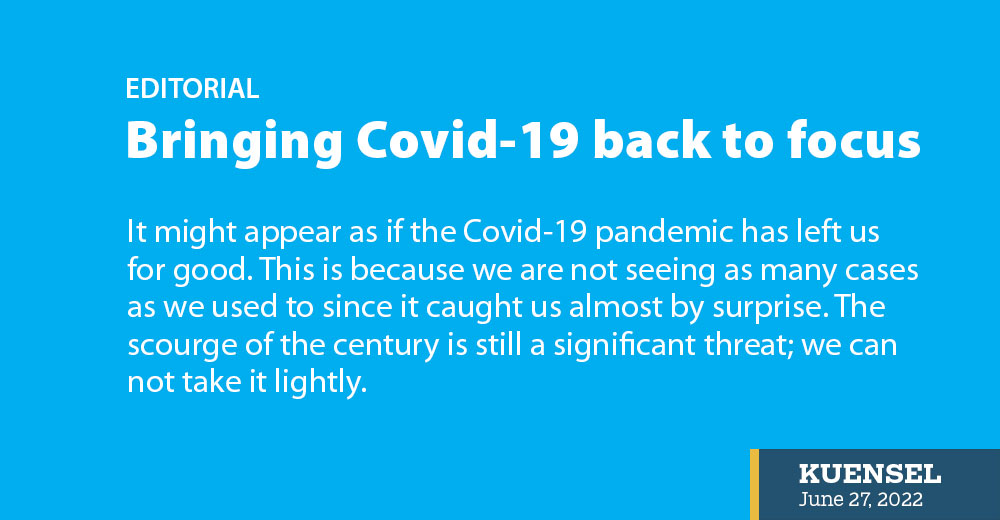It might appear as if the Covid-19 pandemic has left us for good. This is because we are not seeing as many cases as we used to since it caught us almost by surprise. The scourge of the century is still a significant threat; we can not take it lightly.
In the neighbouring countries and the world beyond, Covid-19 continues to overwhelm people, governments and their health sectors. Our nearest neighbour, India, has been grappling with a sudden rise in the number of positive cases.
For example, Maharashtra recently saw a rise of 15 percent positive cases with the rate of positivity hovering at around 10 percent. As the number of previously infected people are contracting the virus again, many are asking whether antibodies from the previous infections could be waning.
What the science tells us is that viruses can retreat and revive, which means if we do not take necessary precautions, we can be infected again. Some scientists have gone on record to say that the current wave could be as devastating as the last one we experienced. While some may take it lightly by saying that the whole new development needs concrete study, we may be making ourselves more vulnerable to the Covid-19.
What can not be argued is that we become easily complacent when case numbers drop. In many places in Bhutan, including Thimphu where population density is very high, simple and effective protocols such as wearing face mask and the requirement to wash hands have disappeared.
Experts tell us that information, education and communication are still very important. Covid-19 is here to stay and terrorise us for some time. What the health sector has done so far deserves praise, but to do more is our responsibility, each individually—we must prevent the spread of the virus as much as possible. For this, understanding the signs and symptoms of the condition is critically important. It’s about being careful.
As we earnestly consider re-opening, there are questions to ask: Are we doing enough to protect ourselves from this deadly virus? Is forgetting health protocols a way to defeat the rapidly-mutating virus? Can we risk further disruptions which have already crippled us as a nation?
Sensible restrictions and meaningful requirements still are very much relevant. It could be a case of penny wise and pound foolish otherwise.


